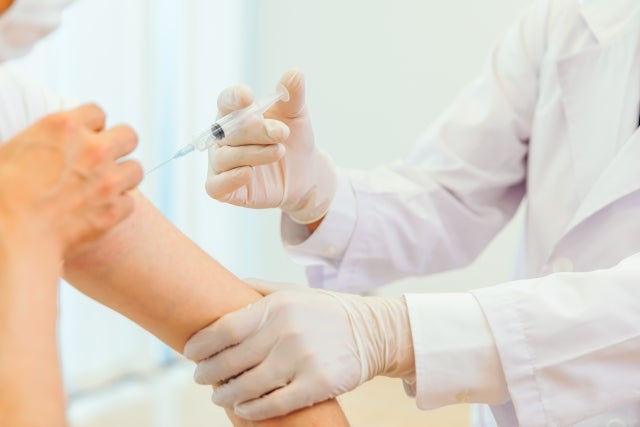https://ameblo.jp/drminori/entry-12882077190.html
<転載開始>
インフルエンザも流行っていますが、実は秘かに流行っているのが梅毒。
私が医者になった頃なんて、梅毒の患者さんなんて居なかったので教科書とアトラスで勉強するしかありませんでした。
初めて梅毒の患者さんを診たのは肛門科医に転身してから。
見事なバラ疹でした。
教科書通りの・・・。
肛門にも皮疹があり、血液検査でも陽性でした。
早速、私が皮膚科医として勤めていた病院に紹介して治療をしてもらったのですが、送り先の皮膚科でも驚いておられました。
初めて見た!と年配の先生も言われていたくらい、珍しい病気でした。
それが・・・コロナワクチンが始まってから梅毒が大流行。
医師サイトにこんなニュースが掲載されていました。
ーーーーーーーーーーーーーーーーー
2024年、梅毒感染201人 調査開始以降で最多 /群馬
2025年1月10日 (金)毎日新聞社
県内で増加する性感染症の梅毒患者が2024年の1年間で最多の201人となり、初めて200人を超えた。
不特定多数との性交渉や海外からの流入などで増加傾向が続く。
調査を開始した1999年は4人で、当初は年10人程度だったが、17年以降は50人前後に増え、21年に初めて100人を超えて106人となっていた。
県感染制御センターによると、男性が132人で女性の69人の倍近い。
年代別では、
10代6人 ▽20代64人 ▽30代37人 ▽40代46人 ▽50代28人 ▽60代13人 ▽70代以上7人。
パートナーの陽性などで受診して判明した無症状の人が、男性22人、女性24人と一定程度を占めた。
一方で、口や性器などにしこりができる場合がある感染後約3週間の段階で判明したのは、男性85人、女性16人。
手足や体全体に赤い発疹が出る場合がある約3カ月が経過したのは、男性21人、女性29人に上った。
脳や心臓などに障害を起こし、死亡の恐れもある感染後数年が経過した人も男性で4人いた。
県は各地の保健所で無料・匿名での検査を実施しており、受けるよう呼びかけている。
ーーーーーーーーーーーーーーーーー
群馬だけ性行動が乱れているのでしょうか?
急に性行動が乱れるとは思えません。
翌日にはこんなニュースが↓
ーーーーーーーーーーーーーーーーー
梅毒の感染者数、昨年も1万人超 22年から3年連続
2025年1月11日 (土)毎日新聞社
国立感染症研究所は10日、性感染症の一つである梅毒の2024年の感染者数(速報値)が全国で1万4663人だったと発表した。
過去最多だった23年の1万4906人に次ぐ多さで、感染の高止まりが続いている。
都道府県別では東京都の3703人が最も多く、大阪府1906人 ▽福岡県880人 ▽愛知県846人 ▽神奈川県792人――と続いた。
厚生労働省などによると、梅毒の感染者は11年ごろから増加傾向にあったが、21年から急増。
22年以降は毎年1万人以上の感染が報告されている。
梅毒に感染すると、性器や口などにできものやしこりができたり、発疹が手のひら、足の裏、体中に広がったりする。
症状が消えても感染力が残る場合もある。
ペニシリン系などの抗菌薬で治療できるが、治療せずに放っておくと、数年~数十年後に心臓や血管、神経に異常が現れる場合がある。
性感染症に詳しい「たによんスタートクリニック」(大阪市)の古林敬一医師によると、梅毒は症状が出ないケースもあるほか、症状が出た場合でも頭痛やそう状態などさまざまな症状があるため、感染の判断が難しいという。
ーーーーーーーーーーーーーーーーー
NHKニュースでも報じられていました。
人口の多い東京都が感染者最多。そして次が大阪。
2021年から急増してるんです。
この年、何がありましたか?
新型コロナワクチンが始まった年です。
そして翌年の2022年以降、ずーっと感染者が1万人超え。
コロナワクチンによる免疫低下が背景にあるのではないかと推測しましたが、論文にも「BNT162b2ワクチン接種後、TLR4およびTLR7/8リガンドに対する自然免疫細胞の反応は低下した」と書かれています。







